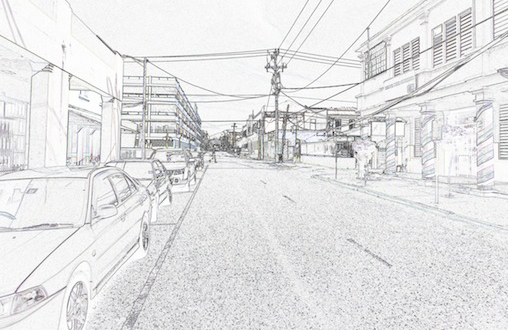Dennis Chung: Business and Consumer Confidence in Jamaica
By Dennis Chung
CJ Contributor
LAST YEAR, when the Jamaica Chamber of Commerce (JCC) reported that consumer and business confidence were at their highest level for years, many persons were excited about the prospects. I remember speaking with Ralston Hyman on the matter, and pointed out that the numbers were deceptive of the true situation, as we both expected that the economic situation would worsen.
This week the JCC reported that confidence was now at its lowest for three years.
Based on the way the economy has progressed, it seems obvious that the expectations last year did not correctly perceive what would happen with the economy’s performance.
What is it though that caused this gap? Was it that the JCC survey was wrong? Was it that since the optimistic expectation things have significantly changed in the economy? Or do business persons and consumers surveyed not have a realistic understanding of what will happen with the economy?
Why would we have said last year that the optimistic confidence numbers do not give a realistic picture of what will happen? We would have said this before it was known that the IMF agreement was not going to be signed before the end of 2012, when everyone expected that it would. So it is not that we expected the economy would have deteriorated, as a result of no IMF agreement. Therefore the reason (uncertainty from lack of IMF agreement) the respondents gave for the low confidence numbers would not have been why we felt that the economy was going to deteriorate.
This leads to the question what is the real benefit of the consumer and business confidence numbers to the prediction of economic performance? Because they are important indicators to watch, even though they should not be relied on solely. In fact, no single indicator should be relied on solely.
Two such indicators that by themselves should not be used as a barometer of future economic performance are interest rates and exchange rates. As a country we tend to oversimplify our reliance on these, to tell us how the economy is going to do. So we believe, for example, that because interest rates are low and the exchange rate stable, then that means the economy does not have a problem. In fact, when economies are growing interest rates and inflation are usually increasing, and require active intervention by the central bank to curb their movement. This is because the demand for money and goods usually exceeds the pace that the supply grows at.
The main reason for saying, last year, that the confidence numbers did not accurately reflect what was going to happen in the economy was the structural deficiencies we saw. These included (1) the still weak global economy; (2) the high cost of energy; (3) the trade deficit; (4) the inefficient bureaucracy; and (5) the general uncompetitiveness of the Jamaican market. If you consider all of this within the context of a closed capital market, then it seemed obvious at the time that even if the IMF agreement was signed before the end of 2012, the measures that would be imposed would reflect continuing fiscal tightening, which would serve to further contract the economy.
In fact, most countries worldwide that have gone the route of fiscal tightening have seen a slowdown, and many have seen a double-dip recession. This is why, even though many criticize JEEP as short-term, unsustainable jobs, the fact is that programmes like those are necessary to keep economic activity alive.
Can you imagine what would have been the outcome if JEEP did not exist? So while I agree that it is not sustainable long- term, as a short-term measure this sort of stimulus is critical.
In fact, this was the main reason given last year for the high levels of consumer confidence especially.
This brings me back to the original question: what then, is the purpose of business and consumer confidence measures if they were so way off in relation to the economic and business climate we face today.
The fact is that business and consumer confidence perception can only measure what the respondents are aware of, and their understanding of the market. If the respondents surveyed do not have a full understanding of how to analyze market conditions going forward, and therefore make a more informed assessment, then they could end up having expectations that are at variant with the actual outcome.
Additionally, it also depends on who was surveyed. If, for example the persons surveyed were primarily those previously unemployed who got a job through JEEP. Or perhaps it was a business person who saw more activity coming in because of JEEP employment. They would naturally feel good about the increased income levels and also about their ability to acquire the things they want to. When people feel confident about their future earnings, then they go out and spend on consumer items — they take out furniture on layaway, take out car loans, when everyone was raking in high returns through Cash Plus and OLINT, remember how they used to spend? Even though the promised returns were just on paper. That is the sort of thing that confidence of future earnings does. It creates a vibrant economy and causes spending to go up and the multiplier effect of money to increase.
This is the effect of stimulus on an economy as we saw with the response about JEEP last year. On the other hand, when people are wary about their future incomes they tend to contract spending, leading to a slowdown in economic activity.
The confidence index therefore, is important for measuring expectations of future spending levels, in relation to consumer spending and investments. However, as I have always said, one should always be guarded about increasing confidence perceptions when an economy has structural issues, and should always look for a trend of improving numbers, which one survey does not make a trend.
It is important for us to understand this, so that we do not incorrectly make decisions based on an unrealistic target.
Dennis Chung is a chartered accountant and is currently Vice President of the Institute of Chartered Accountants of Jamaica. He has written two books: Charting Jamaica’s Economic and Social Development – 2009; and Achieving Life’s Equilibrium – balancing health, wealth, and happiness for optimal living – 2012. Both books are available at Amazon in both digital and paperback format. His blog isdcjottings.blogspot.com. He can be reached at drachung@gmail.com.







